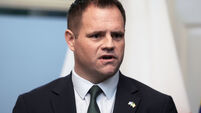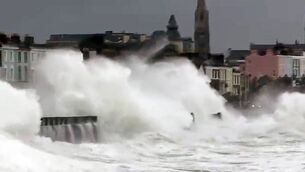Brexit: Taoiseach welcomes extension of talks but warns that the clock is ticking

It is 'extremely important' to avoid a No Deal Brexit, Micheál Martin said. The Taoiseach was speaking at Cork City Hall last night at the launch of the RTÉ documentary about hurler Christy Ring to be broadcast on Thursday. Picture: Michael O'Sullivan
The coming days are crucial in ending the stand-off on Brexit, with the Government warning the matter must be resolved sooner rather so that the country isn't merely given 24 hours notice "before a cliff edge" of no deal.
Talks will continue this week after British prime minister Boris Johnson and European Commission president Ursula von der Leyen agreed to "go the extra mile".













